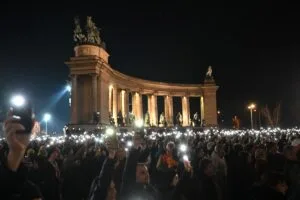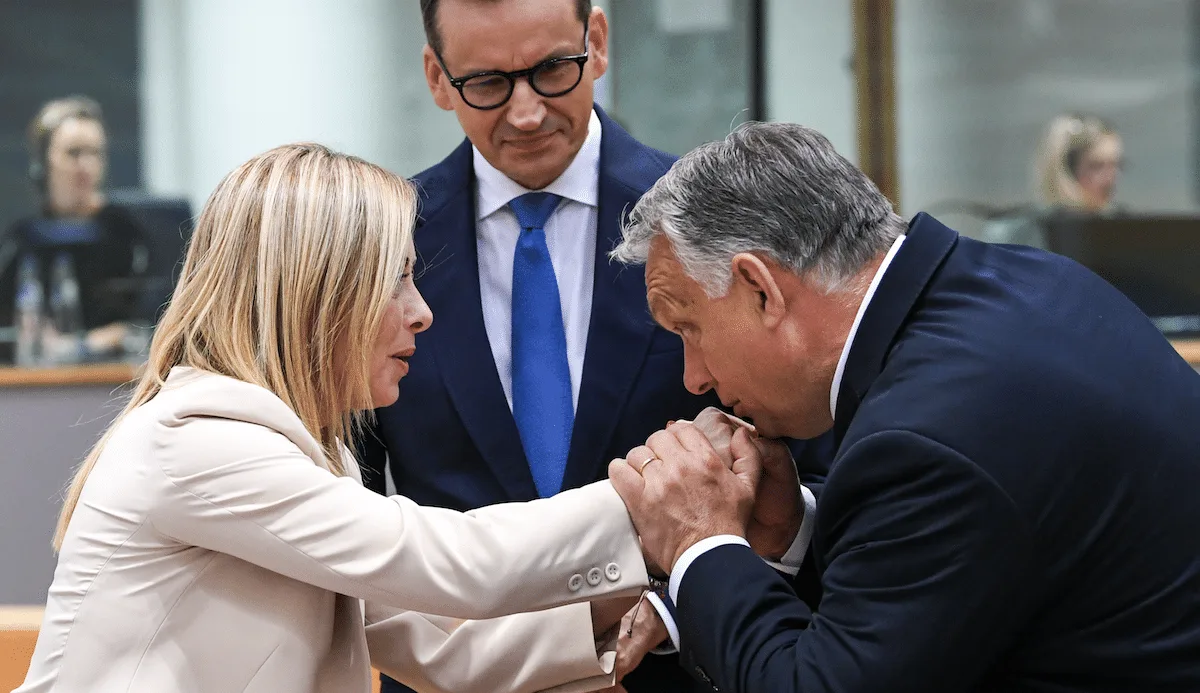Brussels – Viktor Orbán is in trouble. It has happened a few times in his nearly 14 years as prime minister of Hungary, but between the wave of popular protests that swept through national institutions in the last week and the external pressure caused by the continued procrastination over the ratification of Sweden’s NATO accession protocol, the strongman of Budapest is in danger of arriving at the European elections in June in big trouble. “The year 2024 could not have started in a worse way. Our President of the Republic has submitted her resignation to Parliament. This is like a nightmare, and it is taking a toll on us all,” Prime Minister Orbán began in his said in his State of the Nation” address on Saturday (Feb. 17).

The lengthy speech at the beginning of the year came as tens of thousands of people in major cities across the country strengthened protests against the power system responsible for the child sexual abuse scandal. It all stemmed from a pardon that former President Katalin Novák granted with the backing of the resigning Justice Minister Judit Varga to the deputy director of a state orphanage jailed for covering up a series of child sexual abuses at the facility. The pardon dates back to last year, but the news only became public knowledge in recent weeks, sparking outrage that forced the resignation of both direct supervisors — and both close allies of Orbán –even as street demonstrations did not subside. “We must submit…to the National Assembly in the form of a new child protection legislative package,” according to the speech of the prime minister, who now risks politically not so much for his government to hold up – it can count on more than two-thirds of the deputies in Parliament, and elections are scheduled for 2026 – but rather for the prospects of a strengthening Fidesz in the next legislature in Brussels.
But it is not only the popular protests in Hungary that are putting pressure on the Orbán government. It has been almost a month since the Hungarian prime minister confirmed that “at the earliest possible opportunity,” a vote would come from the National Assembly in Budapest for the ratification of Sweden’s NATO accession protocol. Hungary is the only member country of the North Atlantic Treaty Organization not to have formally approved Stockholm’s entry as the 32nd member of the Atlantic Alliance – after the end of the stalemate with the favorable vote of the Turkish Grand National Assembly – Orbán formally dropped his short obstructionism, but so did not his Fidesz party, which controls 116 seats (out of 199) in the National Assembly. Despite the premier’s promises about ratification “as soon as the Parliament reconvenes,” two weeks ago, Fidesz deputies boycotted the extraordinary session with the vote on Sweden’s application for NATO membership on the agenda.

From left: the prime minister of Hungary, Viktor Orbán, and the Russian autocrat, Vladimir Putin, in Beijing on Oct. 17, 2023 (credits: Grigory Sysoyev / Pool / Afp)
“The good news is that our current dispute with Sweden is moving towards a conclusion. Together with the Swedish prime minister, we have taken important steps in order to rebuild trust,” Orbán said again in his address to the nation, promising again that “We are on course to ratify Sweden’s accession to NATO at the beginning of Parliament’s spring session.” The next session on the agenda is Monday (Feb. 26), but there is no indication yet that the vote can come so quickly. The impatience of the other 30 allies is growing, however, so much so that in Washington, Orbán has been called “the least reliable member of NATO,” according to the words of the chairman of the Senate Foreign Affairs Committee, Ben Cardin, also because of the Hungarian Premier’s close relationship with Vladimir Putin. It does not seem to be a coincidence that in his speech on Saturday, Orbán made it clear that he was hopeful of a return of Donald Trump to the White House to “make peace here in the eastern half of Europe,” while The Donald’s positions on Russia and Ukraine are a source of great concern for most EU member states: “It is time for another “Make America Great Again” presidency in the United States,” Trump’s closest ally among the 27 Member States said.
English version by the Translation Service of Withub







